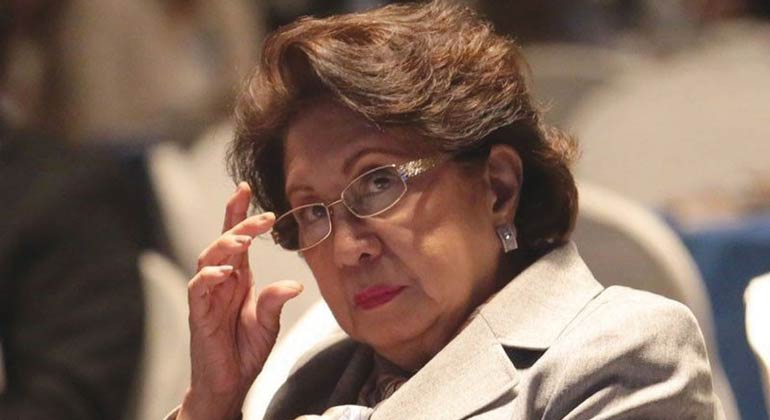Chinese economic aid may be blueprint for increasing its international power — Carpio-Morales

Former Ombudsman and Supreme Court Associate Justice Conchita Carpio-Morales warned that China’s economic support for the Philippines may have “trade-offs” such as debt traps, possible seizure of strategic assets, economic dependence, and even national security.
In her keynote address in a webinar on Friday hosted by the Stratmore Albert del Rosario Institute, Ms. Carpio-Morales alluded to “the growing notion that the (Belt and Road Initiative of China) BRI is far from altruism but is essentially China’s blueprint to advance its geopolitical interest and an embodiment of China’s dream of increasing its domestic and international power.”
“The Belt and Road Initiative… is an ambitious infrastructure investment effort which would connect a host of different countries across the globe with continually increasing geographical reach in order to reach and facilitate what in the initiative identify as its major goals, such as policy coordination, facilities, connectivity, unimpeded trade, financial integration, and people to people bonds,” Ms. Carpio-Morales explained.
“This is how it is made to be understood; rosy and inclusive, devoid of political interests. Ambitious as it is, the selling point of being a game changer in the geopolitical arena has enticed nations to take part in it,” she added.
The BRI is the Chinese government’s centerpiece project to invest in key development infrastructure in nearly 70 countries, including the Philippines.
Its target completion date is 2049, which is also the centennial of the founding of the People’s Republic of China.
Ms. Carpio-Morales said the Chico River pump irrigation project, funded mainly by an $88 million loan from the Export-Import Bank of China, has a contentious confidentiality clause that disallows the disclosure of fine details even to the Filipino people who are the ultimate bearers of the loan.
She added that the New Centennial Water Source Kaliwa Dam project did not conduct an environmental impact study and has been seen as giving preferential treatment to China at the cost of feasible and sustainable development.
On April 21, Australian Foreign Minister Marise Ann Payne announced that Australia will pull out of the BRI as she considered the agreements to be “inconsistent with Australia’s foreign policy or adverse to our foreign relations.” — Bianca Angelica D. Añago



